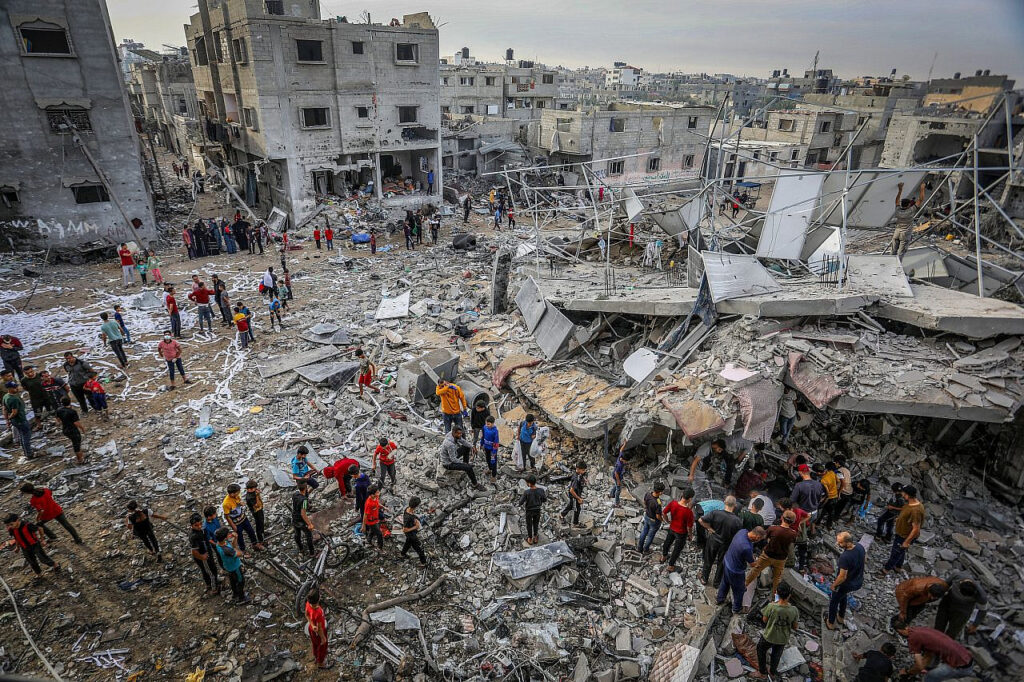
Uval Abraham’s article in +972 Magazine delves into the complex and controversial subject of the Israeli army’s bombing tactics in Gaza, offering a critical examination of the methods and consequences of these military actions. This insightful report brings to light the significant changes in the Israeli army’s approach to bombing in the region, particularly focusing on the expanded authorization for targeting non-military structures, the apparent reduction in constraints regarding civilian casualties, and the sophisticated use of artificial intelligence (AI) in generating targets.
The investigation conducted by Abraham is thorough and multifaceted, drawing on a diverse range of sources to construct a comprehensive view of the situation. It includes interviews with key members of the intelligence community, who provide an inside look into the decision-making processes and strategic considerations of the Israeli military. Additionally, the report gives voice to Palestinian testimonies, offering a poignant and human perspective on the impact of these bombing campaigns.
A central theme of the article is the analysis of what is described as one of the deadliest campaigns against Palestinians since 1948. This assessment is grounded in a detailed examination of the Israeli army’s approach, which includes the bombing of private residences and public buildings. Such tactics are suggested to be part of a broader strategy aimed at shocking Palestinian civil society and exerting pressure on Hamas. This strategy is notable for its acknowledgment of civilian casualty estimates, reflecting a calculated approach to the use of military force in densely populated areas.
The use of AI in these military operations is a critical aspect of Abraham’s report. The AI system “Habsora” is highlighted as a pivotal tool that enables extensive targeting capabilities. This system is said to facilitate the identification of a wide range of targets, including the homes of junior Hamas operatives and even residences without any known militants. The implications of using such advanced technology in military operations are profound, raising questions about the ethics and legality of AI-assisted warfare.
The consequences of these bombing tactics, as outlined in the report, are deeply troubling. Abraham notes the significant civilian casualties that have resulted from these operations, including the loss of many children and women. This human toll is coupled with the extensive destruction of infrastructure and residential areas, which has far-reaching implications for the social, economic, and psychological well-being of the Palestinian population in Gaza.
Abraham’s article is not just a mere report; it’s a crucial piece of investigative journalism that sheds light on a topic of immense global significance. The use of advanced technology in warfare, the ethical considerations surrounding military tactics, and the impact of such actions on civilian populations are issues that resonate far beyond the Israeli-Palestinian conflict. This report is a must-read for anyone interested in understanding the complexities of modern warfare and its human consequences.
In conclusion, Uval Abraham’s article in +972 Magazine offers a critical and in-depth analysis of the Israeli army’s bombing tactics in Gaza. By incorporating interviews, testimonies, and a thorough investigation into the use of AI in military operations, the report provides a comprehensive and nuanced understanding of a highly contentious issue. The implications of these tactics on civilian populations and the ethical considerations they raise make this article an essential read for those seeking to understand the evolving nature of warfare in the 21st century.
Read the full article here
